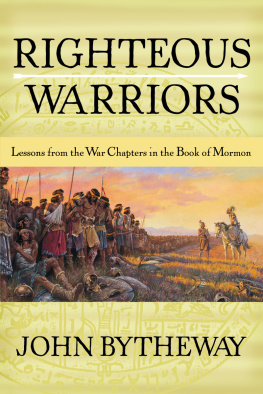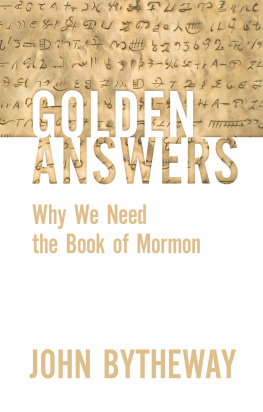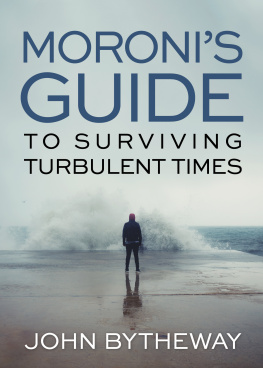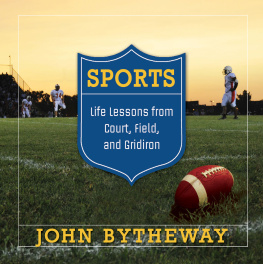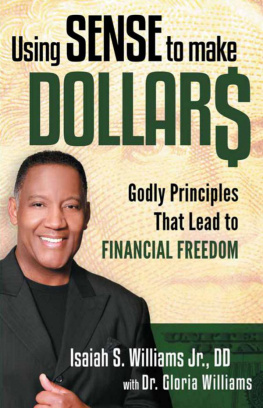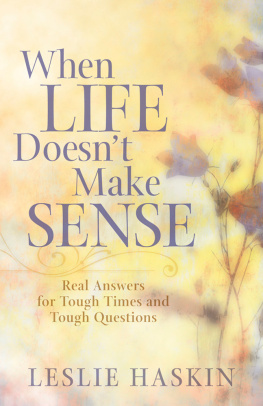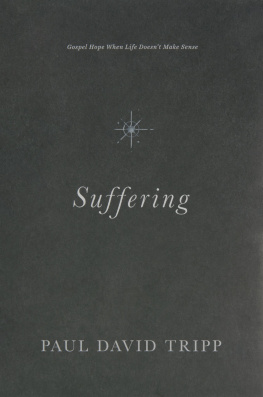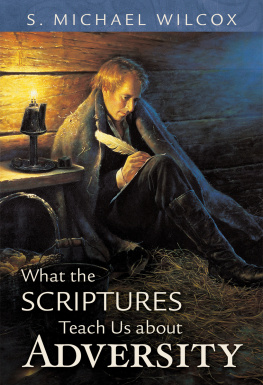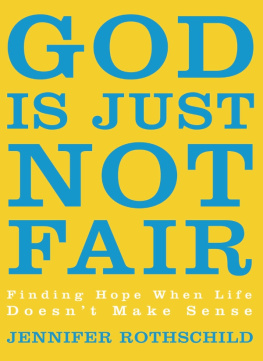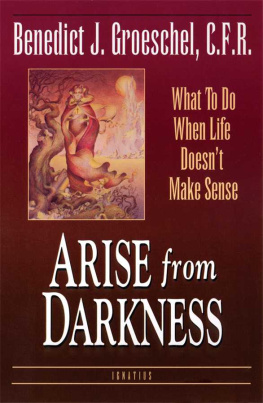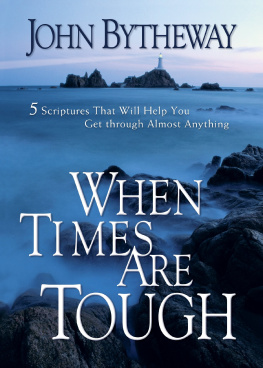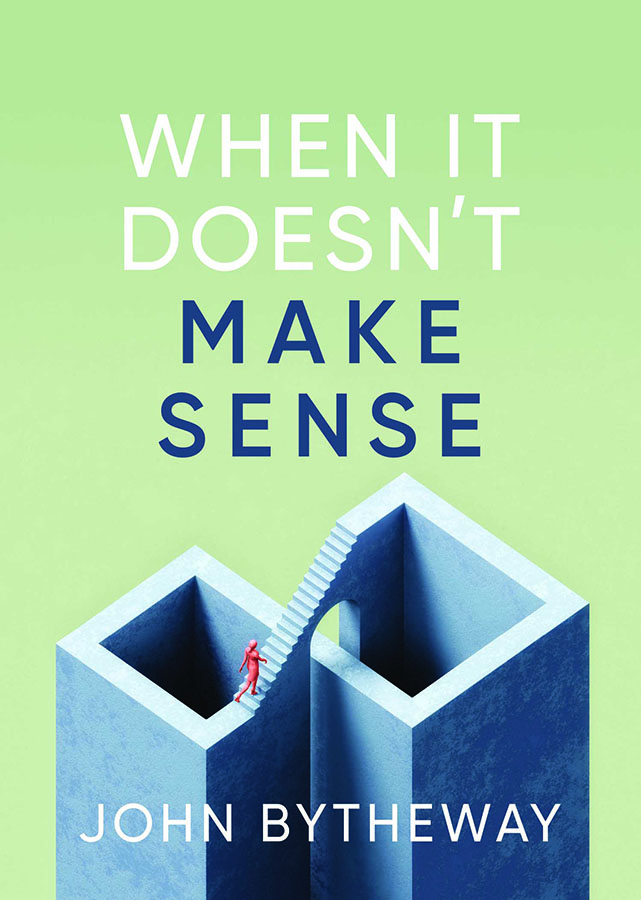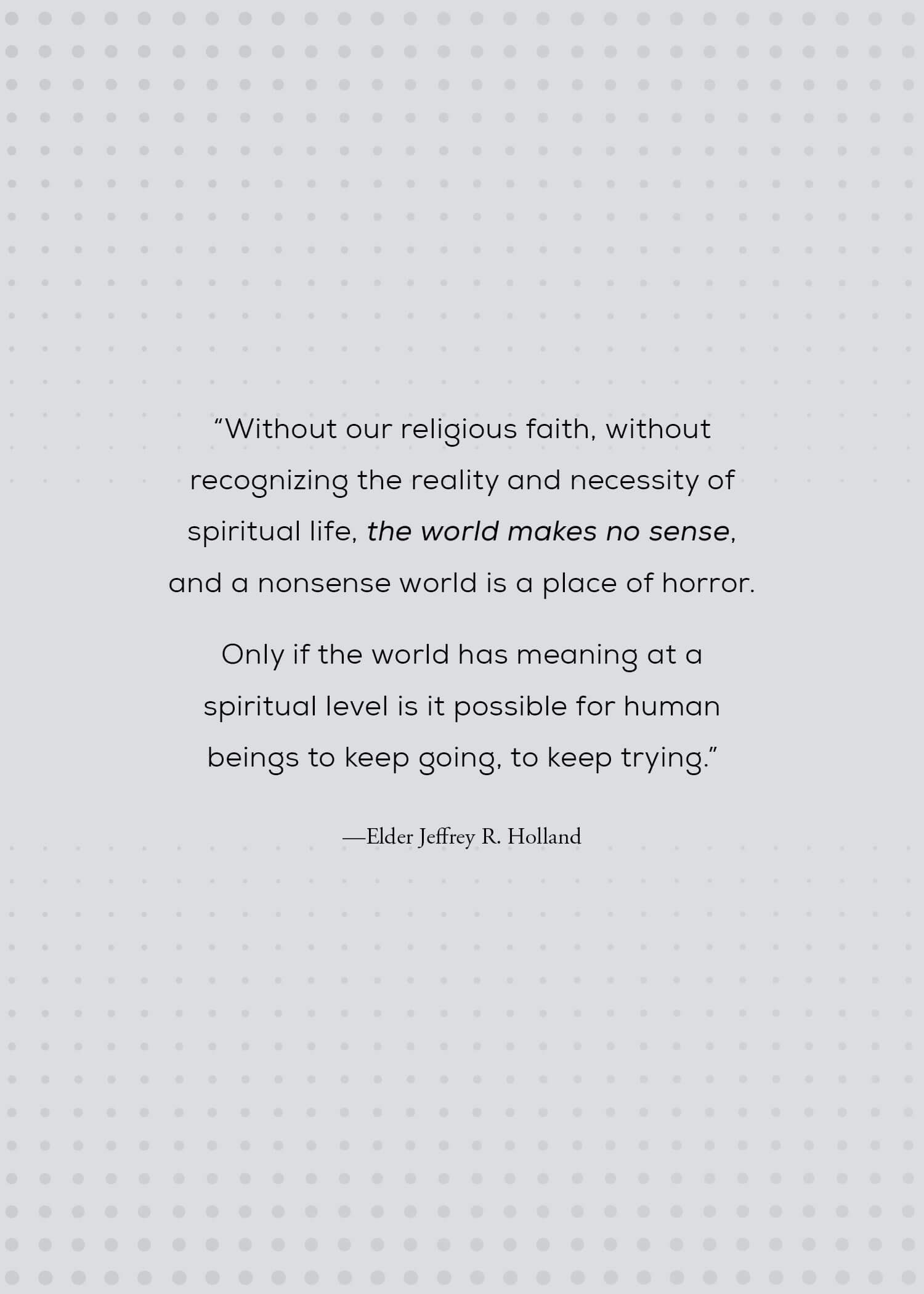Contents
Chapter One
2020 Hindsight
R emember the year 2020? Of course we do;its pretty hard to forget. Thankfully, the year 2020 is growing smaller in our rearview mirror as we travel down the road of time. Normally, you wouldnt want to write anything in a book that would make it dated, or relevant to only a specific time period. However, in this case, 2020 will be a memory that will last in our minds for a long, long time. We will still remember the COVID-19 virus and all the changes brought on by the pandemic when this little book is out of print or only available at Deseret Industries (alongside my other books). Our world is adopting a new normal in the way we do almost everything.
Interestingly, 2020 is not only a year, but 20/20 is a measure of vision. When someone says, Oh, I wish I would have done this... or, Why didnt I think of that... we often respond with, Well, hindsight is 20/20. The phrase 20/20 hindsight has taken on a whole new meaning in light of the year 2020. So heres a good question: did we gain clearer vision because of 2020? Did we develop 2020 hindsight;pun intended?
President Russell M. Nelson told us that the April general conference of 2020 would be unforgettable, and its true; we wont forget it for a long time (see Closing Remarks, Ensign, November 2019). 2020 also did a wonderful job of confusing us with things that didnt make sense. For example:
- Get called on a mission so that you can stay in your apartment?
- Build temples that you cannot attend?
- Minister to others that you cannot visit, except via Zoom?
- Families are important, but you cannot have them over for dinner?
- Pursue marriage, but stay six feet apart?
- Smile at others, but wear a mask so that no one will know?
- Social distance in lines at the airport so that you can sit within mere inches of each other on the plane?
- (And my personal favorite) be sure to get checked if you have symptoms;but you might be asymptomatic, so you should still get checked;except you wont know that you should get checked. So, you might want to check on that? And be sure to stay away from people who do and who do not have symptoms.
We all seem to be born with a sense of justice, a sense of fairness, and the expectation that things should make sense . In our childhood math class we learned that 2 + 2 = 4, every single time. No exceptions. In algebra, we learned that you can do whatever you want to one side of the equation, as long as you do the same thing on the other side. It makes perfect sense, and the rules of math work every single time.
As we grow older, we learn that life is not math class. Its more like, well, humanities. Sometimes it means this, and other times it doesnt. Its all subjective. Or, its in the eyes of the beholder;this is art, and this isnt. This is abstract, and this is impressionist. Still, we often believe life should be more like math class, which causes us to look heavenward and exclaim, Why is this happening? or, What did I do to deserve this? or, Why did the Church make this change? or, This doesnt make sense!
We all appreciate the concise statement of the test of mortality described in Abraham 3:25: We will prove them herewith, to see if they will do all things whatsoever the Lord their God shall command them. We get it. This life is a test. With that in mind, imagine what we do to ourselves when we form our own rules like these:
- I will keep the commandments as long as they make sense to me .
- I will believe the words of the scriptures as long as they make sense to me .
- I will have a testimony as long as everything I learn about Church history makes sense to me .
- I will keep believing as long as other members and leaders behave in a way that makes sense to me .
Because so much of the gospel does make sense, we want everything to make sense, and often, it doesnt. If we are asking all our experiences on earth to live up to our own ideas of fairness, justice, and what makes sense, we are setting ourselves up for a lifetime of frustration. Things only add up in math class.
Id like to add a few words to Abraham 3:25, which I have no right to do, but which I truly believe are implied. Lets read it again in an effort to help set the tone and purpose of this book:
We will prove them herewith, to see if they will do all things whatsoever the Lord their God shall command them even when it doesnt make sense .
That is what we might call moving forward with faith. So, weve survived 2020 and can look back with 2020 hindsight. But navigating the future by looking only at the past is not the best strategy;thats like driving a car by looking only in the rearview mirror. So what do we do? As always, we start by remembering what we know for sure. We seek truth. What is truth? My favorite definition is from the Doctrine and Covenants: And truth is knowledge of things as they are, and as they were, and as they are to come (D&C 93:24).
Truth is truth;whether in the past, present, or future. So we will continue to search for the truth. First, we get anchored in truth, and then we will learn from three sights: The hindsight weve gleaned from the past, insight to govern our present, and foresight to prepare for our future.
These three sights enable us to move forward, not just look backward. Focusing on hindsight alone keeps us stuck in the past unless we learn lessons and move forward. It reminds me of a joke:
Sue: So, whats your superpower?
Bob: I have great hindsight.
Sue: Well, thats not very helpful.
Bob: Yeah, I see that now...
Joking aside, hindsight is only useful when it can provide insight and foresight for future choices.
Elder David A. Bednar observed that the word test doesnt appear anywhere in the standard works. Instead, he explained, the scriptures use words like prove , examine , or try . Notice that trial is a form of the word try . Elder Bednar remarked:
The year 2020 has been marked, in part, by a global pandemic that has proved, examined, and tried us in many ways. I pray that we as individuals and families are learning the valuable lessons that only challenging experiences can teach us. I also hope that all of us will more fully acknowledge the greatness of God and the truth that he shall consecrate [our] afflictions for [our] gain. (We Will Prove Them Herewith, Ensign, November 2020)
President Russell M. Nelson also challenged us to identify lessons from our trials. He asked about our hindsight, insight, and foresight with these words:
Now, I would love to know what you have learned this year. Have you grown closer to the Lord, or do you feel further away from Him? And how have current events made you feel about the future? (Embrace the Future with Faith, Ensign, November 2020)
Indeed, what have we learned? Has our testimony been shaken or strengthened? I once heard that if trials made sense, they wouldnt be trials. Can things that dont make sense bring us to our senses? I believe so. I believe we usually learn more from our hard times than from our easy times. I love what Sister Sheri Dews young nephew quipped, which became the title of one of her books: If life were easy, it wouldnt be hard!



